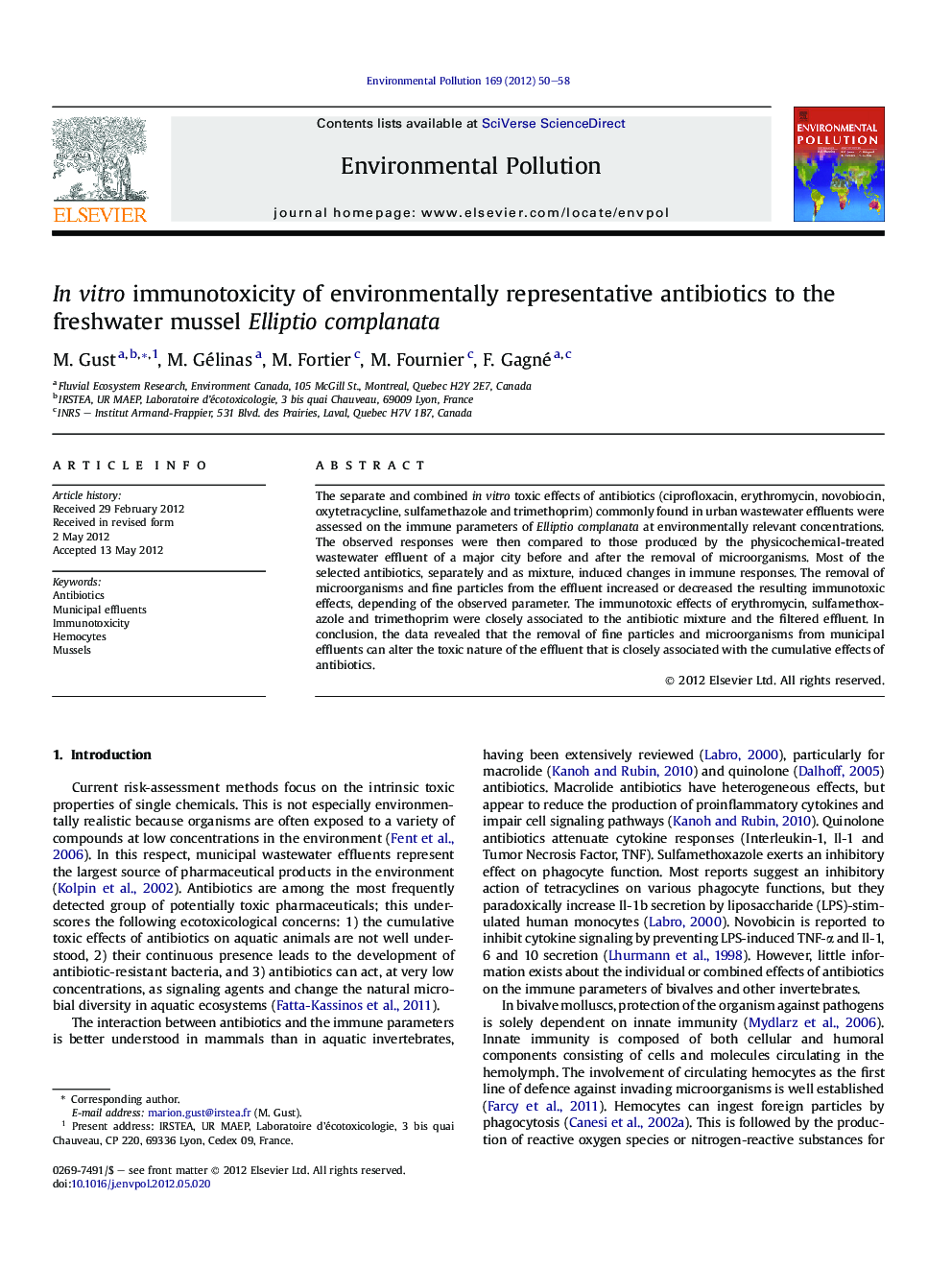| Article ID | Journal | Published Year | Pages | File Type |
|---|---|---|---|---|
| 4424790 | Environmental Pollution | 2012 | 9 Pages |
The separate and combined in vitro toxic effects of antibiotics (ciprofloxacin, erythromycin, novobiocin, oxytetracycline, sulfamethazole and trimethoprim) commonly found in urban wastewater effluents were assessed on the immune parameters of Elliptio complanata at environmentally relevant concentrations. The observed responses were then compared to those produced by the physicochemical-treated wastewater effluent of a major city before and after the removal of microorganisms. Most of the selected antibiotics, separately and as mixture, induced changes in immune responses. The removal of microorganisms and fine particles from the effluent increased or decreased the resulting immunotoxic effects, depending of the observed parameter. The immunotoxic effects of erythromycin, sulfamethoxazole and trimethoprim were closely associated to the antibiotic mixture and the filtered effluent. In conclusion, the data revealed that the removal of fine particles and microorganisms from municipal effluents can alter the toxic nature of the effluent that is closely associated with the cumulative effects of antibiotics.
► Environmental concentrations of antibiotics induce the immune response in mussels. ► Antibiotic mixture also modulate the immune response. ► Urban effluent, both filtered and unfiltered also increase the immune response. ► Filtered effluent, antibiotic mixture and 3 antibiotics induced similar responses.
